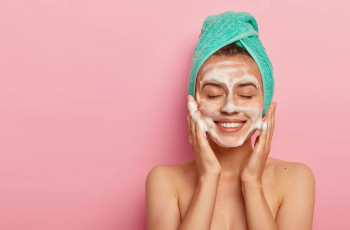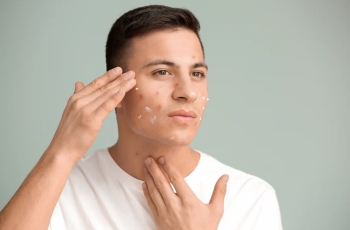
Natural Sunscreens: What You Need to Know for Safer Skin and a Healthier Planet
Whether you’re passionate about protecting your health, preserving the environment, or both, the importance of sunscreen cannot be overstated. But not all sunscreens are created equal. With growing awareness of potential skin sensitivities and environmental impact, many people are turning toward natural sunscreens—also known as mineral or physical sunscreens—as a safer and more eco-conscious alternative.
These natural sunscreens are formulated without certain controversial ingredients found in chemical sunscreens. They’re often free from synthetic fragrances, parabens, and other irritants, making them especially suitable for sensitive skin. And when you’re heading out for a beach day, hike, or just a walk in the sun, carrying a trusted mineral SPF can be one of the best decisions you make for both your skin’s health and the world around you.
Still, this doesn’t mean that chemical sunscreens are inherently bad. In fact, both the American Academy of Dermatology (AAD) and the Skin Cancer Foundation have publicly stated that the benefits of sunscreen—whether chemical or mineral—far outweigh the potential risks. According to board-certified dermatologist and cosmetic surgeon Dr. Joel Schlessinger, “Many people benefit greatly from chemical sunscreens, especially due to their ease of application and broad-spectrum protection.”
So, the big question is: How do natural sunscreens differ from chemical ones? And why might someone choose one over the other?
Chemical vs. Natural Sunscreens: What’s the Difference?
Before diving into the best products, it’s important to understand what sets chemical and mineral sunscreens apart:
Chemical Sunscreens absorb UV rays into the skin, where the rays are converted into heat and released. Common active ingredients include oxybenzone, avobenzone, octocrylene, and octinoxate. These sunscreens tend to be lightweight, easy to spread, and invisible on most skin tones.
Mineral (Natural) Sunscreens, by contrast, sit on top of the skin and reflect UV rays. Their active ingredients are usually zinc oxide and titanium dioxide—both naturally occurring minerals. These are less likely to irritate sensitive skin and are often recommended by dermatologists for individuals with skin conditions like eczema, rosacea, or a history of allergic reactions.
Why Choose a Natural Sunscreen?
Natural sunscreens are more than just a skincare trend—they’re part of a growing movement toward clean beauty and sustainable living. Here are some compelling reasons to consider switching to mineral-based SPF:
1. Gentler on Sensitive Skin
People with sensitive skin, acne-prone complexions, or inflammatory conditions like rosacea often find that chemical sunscreens can cause stinging, redness, or breakouts. Mineral sunscreens, on the other hand, are less likely to trigger these reactions.
2. No Harsh Chemicals
Many natural SPFs are free of controversial ingredients like oxybenzone, which has been linked to both environmental harm and potential hormone disruption. They also often exclude fragrances, parabens, and phthalates.
3. Reef-Safe and Environmentally Friendly
Oxybenzone and octinoxate—ingredients commonly found in chemical sunscreens—have been shown to contribute to coral bleaching and marine toxicity. This has led to legislation in places like Hawaii and Key West banning sunscreens with these compounds. Mineral sunscreens, being free of these ingredients, are typically labeled “reef-safe,” meaning they won’t disrupt aquatic ecosystems.
4. Immediate Protection
Unlike chemical sunscreens, which can take up to 30 minutes to activate, mineral sunscreens start working as soon as they’re applied.
A Note on Labels: “Natural” Isn’t Always Regulated
One challenge in shopping for natural products is that the term “natural” isn’t regulated by the Food and Drug Administration (FDA). This means that products labeled as natural might still contain synthetic or chemical ingredients. Always read ingredient lists and look for active ingredients like zinc oxide or titanium dioxide, and steer clear of oxybenzone or avobenzone if you want a truly mineral option.
EWG Ratings: A Helpful Resource
The Environmental Working Group (EWG) provides a trusted annual guide to sunscreens, evaluating them on a scale from 1 to 10. A rating of 1 indicates the lowest hazard and highest level of safety. When in doubt, checking the EWG’s database is a great way to make an informed purchase.
Top Dermatologist-Recommended Natural Sunscreens for 2024
Here’s a curated list of the top-rated mineral sunscreens available today, based on expert recommendations and consumer reviews.
1. Blue Lizard Sensitive Mineral Sunscreen
Why it’s great: Recommended by dermatologists and consistently ranked as a top sunscreen, Blue Lizard Sensitive is a go-to for individuals with extremely sensitive skin.
Key Features:
Contains zinc oxide and titanium dioxide
Fragrance-free, paraben-free, and chemical-free
Bottle changes color in UV light—a helpful reminder to reapply
EWG Rating: 1
Expert Insight: “My patients with the most sensitive skin can tolerate it,” says Dr. Lauren Ploch, board-certified dermatologist and member of the AAD.
2. Aveeno Positively Mineral Sensitive Skin Sunscreen SPF 50
Why it’s great: Lightweight and non-greasy, this sunscreen provides gentle but effective protection and includes skin-soothing oat extract.
Key Features:
Mineral-based with zinc oxide
Oat extract calms irritated skin
Suitable for both face and body
Fragrance-free and oil-free
Expert Insight: “It’s free of chemical blockers and uses mineral technology to protect the skin,” says Dr. Joshua Zeichner, director of dermatology research at Mount Sinai Hospital.
3. EltaMD UV Physical Broad-Spectrum SPF 41
Why it’s great: Trusted by dermatologists, EltaMD UV Physical offers water resistance, a tinted matte finish, and excellent protection.
Key Features:
Zinc oxide and titanium dioxide
Tinted, making it ideal as a makeup base
Fragrance- and paraben-free
Water-resistant for up to 40 minutes
Expert Insight: “This provides great pigmented and matte coverage for the face,” says Dr. Julia Tzu, founder of Wall Street Dermatology.
4. Sun Bum Mineral SPF 30 Tinted Face Lotion
Why it’s great: A top pick by the Good Housekeeping Beauty Lab, this zinc-based sunscreen functions like a makeup primer—smooth, matte, and perfect for daily wear.
Key Features:
Hypoallergenic and fragrance-free
Matte finish and non-greasy feel
Reef-safe and cruelty-free
User Review: “It spreads easily and dries almost powdery. Regular sunscreen feels greasy on the face after a while, but this one doesn’t,” said one enthusiastic reviewer on Amazon.
5. Thinksport Safe Sunscreen SPF 50+
Why it’s great: If you’re looking for an organic and water-resistant formula, Thinksport delivers high-performance protection with a clean ingredient list.
Key Features:
Zinc oxide as the active ingredient
Enriched with aloe vera, jojoba oil, hyaluronic acid, and Vitamin C
Broad-spectrum SPF 50+
Water-resistant for up to 80 minutes
Bonus: It absorbs quickly and doesn’t leave behind a sticky residue—perfect for sports, swimming, or lounging poolside.
How to Choose the Right Natural Sunscreen
With so many options on the market, choosing the right sunscreen can feel overwhelming. Here are a few tips to guide your search:
Check for Zinc or Titanium: Look for sunscreens that list zinc oxide or titanium dioxide as the active ingredients.
Look for EWG Certification: Products with an EWG rating of 1 or 2 are your safest bets.
Avoid “Chemical-Free” Gimmicks: Some products use the term misleadingly. Always verify ingredient lists.
Match to Your Needs: Tinted formulas are great for daily use, while sport formulas are ideal for swimming or intense activity.
Choose Non-Nano Formulas: Some experts recommend avoiding “nano” particles (ultrafine mineral particles) for environmental reasons, although research is still ongoing.
Final Thoughts: Is Natural Sunscreen Right for You?
Choosing a sunscreen—whether chemical or mineral—is a personal decision that depends on your skin type, lifestyle, and values. What’s most important is that you use it consistently. Unprotected sun exposure is the leading cause of skin aging and a major contributor to skin cancer, so daily sun protection is a must.
Natural sunscreens offer a fantastic balance between skin safety and environmental responsibility. With newer formulations that blend more easily, don’t leave a white cast, and feel luxurious on the skin, there’s never been a better time to make the switch.
So, whether you’re planning your next beach trip, hitting the hiking trails, or simply stepping out for your morning coffee, make sure a trusted mineral SPF is part of your routine. Your skin—and the planet—will thank you.


